Search
Search Results

Video
Vampires: Folklore, Fantasy & Fact - Michael Molina
View full lesson: http://ed.ted.com/lessons/vampires-folklore-fantasy-and-fact-michael-molina The myth of the bloodsucking vampire has stalked humans from ancient Mesopotamia to 18th-Century CE Eastern Europe, but it has differed in the...
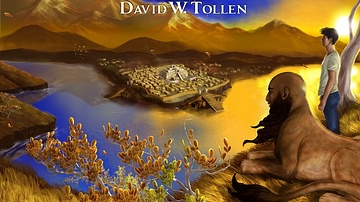
Interview
The Jericho River: An Interview with David Tollen
In his first work of fiction, the novel The Jericho River ($12.88 on Amazon/ $9.94 on Bookdepository) David Tollen tells a vivid story by beautifully bringing together most major civilizations in history. In this exclusive interview, Jan...
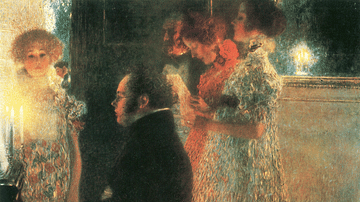
Definition
Franz Schubert
Franz Schubert (1797-1828) was an Austrian composer of Romantic music best known for his songs, symphonies, piano music, and chamber music. Schubert's career lasted only 15 years, but he was a prolific composer. Neither a conductor or virtuoso...
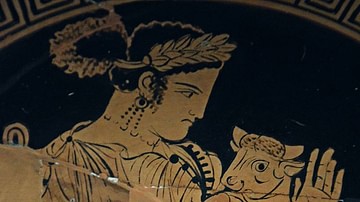
Definition
Pasiphaë
Pasiphaë ("all-shining") is the wife of King Minos of Crete and the mother of the fearsome Minotaur (half-bull, half-man creature) in Greek mythology. She is the daughter of the sun god Helios and Perse, an Oceanid. Like her sister Circe...
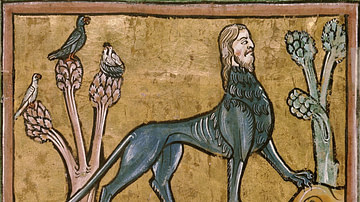
Definition
Manticore
The manticore, derived from the Early Middle Persian merthykhuwar or martiora, meaning "man-eater" (also known as a mantichora or a martichore), is a fearsome hybrid creature found in classical and medieval literature. It has the body of...
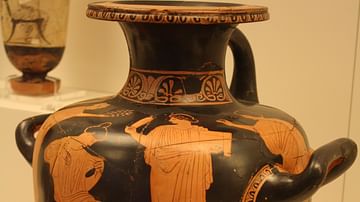
Definition
Lysistrata
Lysistrata was the third and final of the peace plays written by the great Greek comic playwright Aristophanes (c. 445 - c. 386 BCE). Shown in 411 BCE at the Lenaea festival in Athens, it was written during the final years of the war between...
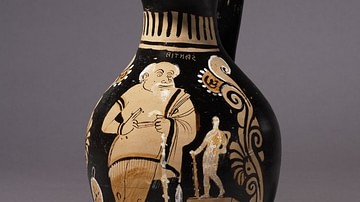
Definition
The Frogs
The Frogs is a comedy play by Aristophanes (c. 445 - c. 385 BCE), the most famous of the comic playwrights of ancient Greece. Named after the creatures who composed the play's chorus, it won first prize at the dramatic festival at Lenaea...

Definition
Ecclesiazusae
The Ecclesiazusae (aka Assemblywomen) is a comedy play written by Aristophanes, one of the great Greek comic playwrights. Written sometime between 393 and 391 BCE, it is, along with his play Wealth, one of only two he wrote after the Athenian...
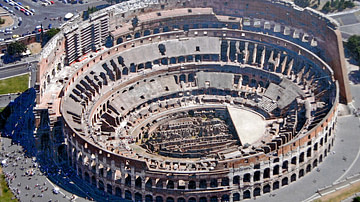
Definition
Colosseum
The Colosseum or Flavian Amphitheatre is a large ellipsoid arena built in the first century CE by the Flavian Roman emperors of Vespasian (69-79 CE), Titus (79-81 CE) and Domitian (81-96 CE). The massive arena held 50,000 spectators and hosted...
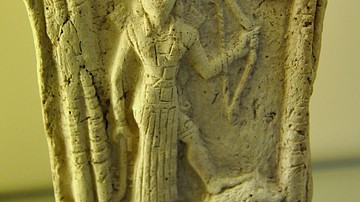
Definition
Ishtar
Ishtar (Inanna in Sumerian sources) is a primary Mesopotamian goddess closely associated with love and war. This powerful Mesopotamian goddess is the first known deity for which we have written evidence. While largely unknown in the modern...